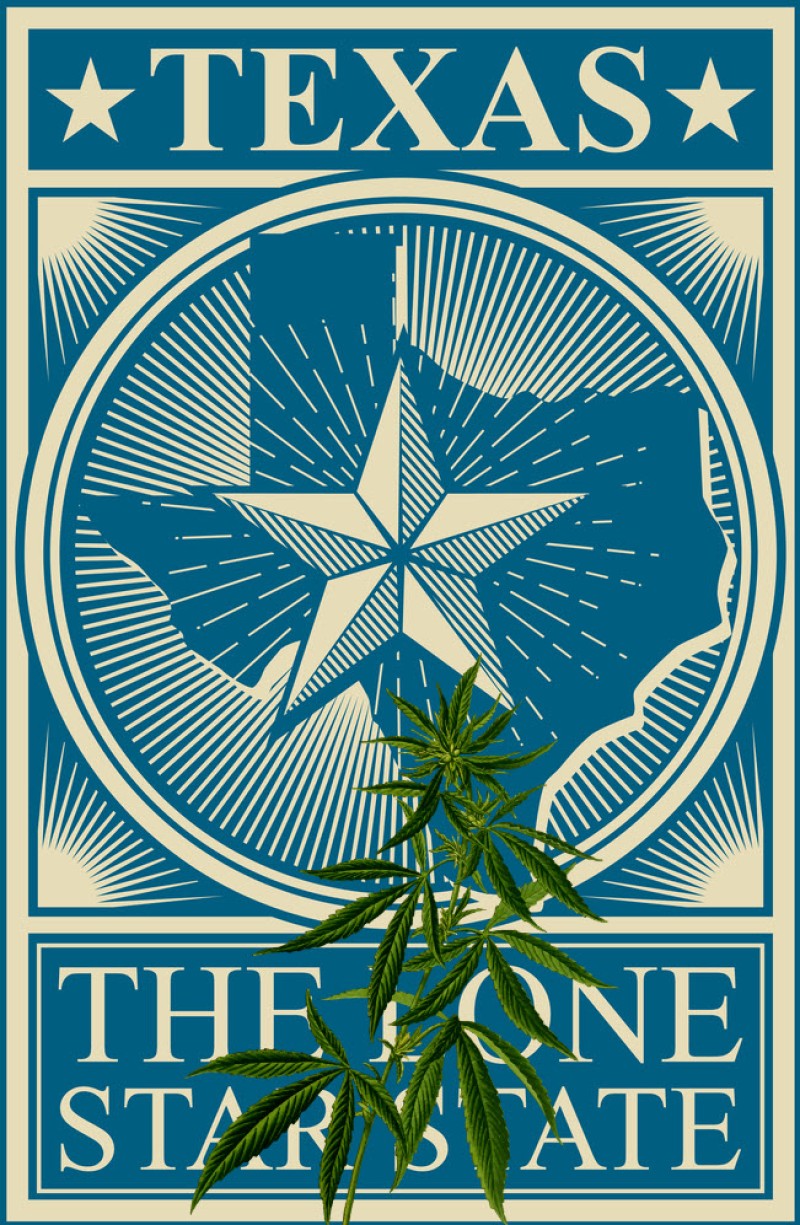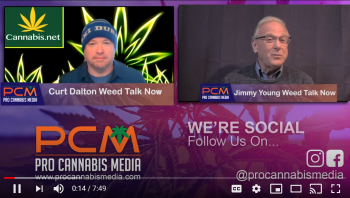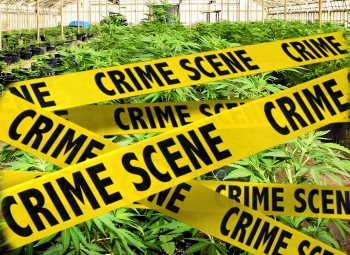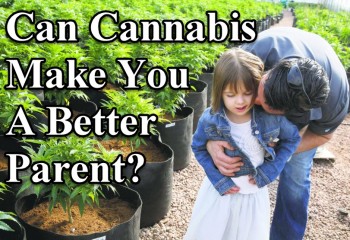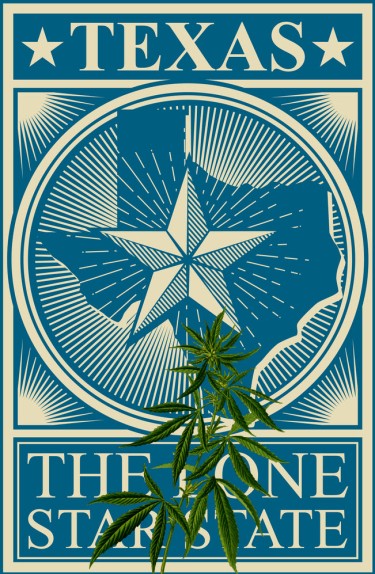
Texas' Gift to the Cartels: How SB3 Hands the THC Market to Criminal Organizations
In a stunning display of political theater disguised as child protection, the Texas House just voted to eliminate an $8 billion legal industry and hand it directly to Mexican and Chinese drug cartels. Senate Bill 3, which passed 95-44 late Wednesday night, bans virtually all THC products in Texas—effectively criminalizing an industry that employs thousands of Texans and serves millions of adults who prefer regulated products over black market alternatives.
Lt. Governor Dan Patrick, the bill's champion, claims this draconian measure protects children and adults. But anyone with even a passing familiarity with prohibition's history knows exactly what happens next: the legal businesses will close, the products will disappear from regulated shelves, and within weeks, cartels will flood Texas with unregulated, untested, and potentially dangerous alternatives sold by dealers who definitely don't check IDs.
This isn't speculation—it's the predictable outcome of every prohibition effort in modern history. When you eliminate legal competition, you don't eliminate demand; you simply gift-wrap the entire market for criminal organizations. Texas lawmakers have just handed drug cartels an $8 billion present while pretending to protect the very children who will now be forced to buy these products from street dealers.
The truly infuriating aspect of SB3 isn't just its inevitable failure to protect anyone—it's the breathtaking hypocrisy it reveals about Texas' supposed commitment to "small government." Apparently, government is only small when it's convenient. When it comes to what adults choose to put in their own bodies, Texas Republicans suddenly become enthusiastic advocates for Big Government overreach that would make a Soviet commissar blush.
As the Texas Hemp Business Council noted in their statement: "We are deeply disappointed by the Texas House's passage of SB3, a bill that dismantles the legal hemp industry and ignores the voices of small businesses, farmers, veterans and consumers across the state who rely on hemp-derived products for their livelihoods and well-being." But disappointment seems inadequate when facing such willful policy malpractice.
The Details: What SB3 Actually Does
Senate Bill 3, authored by Senator Charles Perry and championed by Lt. Governor Dan Patrick, represents one of the most comprehensive THC bans in the country. The legislation doesn't just nibble around the edges—it takes a sledgehammer to Texas' entire legal cannabis industry.
The ban includes Delta-8, Delta-9, and "all other forms of intoxicating THC," including beverages, edibles, and concentrates. Adults caught possessing any THC product would face up to a year in jail—a penalty more severe than many states impose for drunk driving. The bill also prohibits the retail sale of virtually any cannabinoid in the state, with exceptions only for CBD and CBG.
This sweeping prohibition targets an industry that grew from a legal loophole created by federal and state hemp laws. The 2018 Farm Bill and Texas House Bill 1325 in 2019 legalized hemp by defining it as cannabis containing 0.3% delta-9 THC or less. However, these laws didn't explicitly cap other forms of THC like delta-8 and delta-10, which aren't naturally found in large quantities but can be synthesized from legal hemp.
Cannabis companies recognized this opportunity and developed products containing alternative THC compounds, creating what became an $8 billion industry in Texas. Thousands of CBD shops opened across the state, providing jobs, generating tax revenue, and offering consumers regulated alternatives to black market products.
Lt. Governor Patrick characterized these businesses as exploiting a "loophole" to sell "life-threatening, unregulated forms" of THC, claiming they "often target children with their marketing." But this framing conveniently ignores that these businesses operate under existing regulations, pay taxes, employ Texans, and serve primarily adult customers seeking alternatives to alcohol or illegal drugs.
The timing of SB3's passage is particularly cynical. The bill moved through the legislature during a period when public attention was focused elsewhere, avoiding the kind of sustained opposition that might have emerged with more public awareness. Over 170 people signed up to testify against the bill in March, but their voices were ultimately ignored in favor of moral panic and political grandstanding.
Notably absent from Patrick's justification is any credible evidence that legal THC products pose a greater threat than the illegal alternatives that will inevitably replace them. The lieutenant governor's claims about "life-threatening" products ring hollow when compared to the documented dangers of unregulated black market substances, which frequently contain dangerous additives, unknown potencies, and harmful contaminants.
SB3 doesn't eliminate THC from Texas—it simply ensures that all THC products will be produced by criminal organizations operating without safety standards, quality control, or age verification systems. In other words, Texas just made THC significantly more dangerous while claiming to protect public safety.
The Inevitable Outcome: Cartels Win, Texans Lose
Anyone who understands basic economics and prohibition history can predict exactly what happens next in Texas. The legal THC industry doesn't disappear—it goes underground, where criminal organizations operate without regulations, safety standards, or concern for consumer welfare.
Mexican cartels already control significant portions of the illegal drug trade across Texas. Chinese criminal organizations have increasingly moved into synthetic drug production, including synthetic cannabinoids. SB3 has just eliminated their competition and handed them a monopoly on an $8 billion market.
"Since 2019, retailers across Texas have exploited a state agriculture law to sell life-threatening, unregulated forms of Tetrahydrocannabinol," claimed Lt. Governor Patrick. But the truly life-threatening products are about to flood the market: unregulated cartels products with unknown ingredients, unpredictable potencies, and dangerous adulterants.
John Burk, owner of Shell Shock CBD in Richardson and a combat veteran, captured the absurdity perfectly: "Texans don't want this. Let us be. Let combat veterans be. If we want to have a blunt, it's no different than having an old-fashioned [drink] and kicking back." Burk noted that veterans like himself use THC rather than more addictive opioids—a harm reduction approach that SB3 completely undermines.
The DEA's own intelligence reports confirm that Chinese and Mexican criminal organizations are already positioned to exploit prohibition gaps. Chinese labs produce synthetic cannabinoids and ship them directly to distribution networks, while Mexican cartels have sophisticated smuggling and distribution operations throughout Texas. These organizations don't check IDs, don't pay taxes, don't follow safety regulations, and don't care about Texas laws.
Meanwhile, the legal businesses that employed Texans, paid taxes, and operated under existing regulations will close. The Texas Hemp Business Council represents hundreds of legitimate businesses that will be destroyed by SB3, taking jobs and tax revenue with them. These weren't fly-by-night operations exploiting loopholes—they were regulated businesses serving adult consumers who preferred legal products over black market alternatives.
The human cost extends beyond business owners. Patients using THC products for medical conditions will be forced back to illegal sources or more dangerous alternatives. Veterans using THC instead of opioids will lose access to a safer option. Adults who responsibly used regulated THC products will now face criminal penalties for possession.
Children—supposedly the beneficiaries of this prohibition—will find THC products easier to access than before. Street dealers don't check IDs or refuse sales to minors. They don't follow advertising restrictions or package products safely. The "protection" offered by SB3 is entirely illusory.
This isn't speculation or partisan criticism—it's the documented pattern of every modern prohibition effort. Alcohol prohibition created organized crime. Cannabis prohibition created international drug cartels. Opioid restrictions created the fentanyl crisis. Now Texas is about to repeat this failed experiment with predictably catastrophic results.
Lt. Governor Patrick and SB3's supporters will undoubtedly express shock when illegal THC products flood Texas markets, when overdoses occur from contaminated products, when children access THC more easily than before, and when violence increases as criminal organizations fight for market share. But these outcomes aren't unintended consequences—they're the inevitable result of prohibition policies that consistently fail to achieve their stated goals.
Small Government Hypocrisy: The Conservative Contradiction
Perhaps the most galling aspect of SB3 is how it exposes the fundamental dishonesty of Texas Republicans' "small government" rhetoric. Apparently, government is only too big when it comes to regulating businesses or protecting the environment. When it comes to controlling what adults put in their own bodies, suddenly Big Government overreach becomes not just acceptable but mandatory.
This isn't limited government—it's selective authoritarianism. Texas Republicans will lecture about personal responsibility and individual liberty while simultaneously criminalizing adults for making personal choices about their own bodies. They'll rail against federal overreach while implementing some of the most draconian drug laws in the nation.
The cognitive dissonance is stunning. The same legislators who oppose business regulations enthusiastically support regulations that will destroy an $8 billion industry. The same politicians who champion individual rights support throwing adults in jail for possessing plant extracts. The same party that claims to support veterans votes to criminalize substances many veterans use instead of addictive opioids.
John Burk's testimony highlighted this contradiction perfectly. As a combat veteran, he served his country and earned the right to make personal decisions about his own health and well-being. Yet Texas Republicans want to throw him in jail for choosing THC over more dangerous alternatives. This isn't conservatism—it's paternalistic authoritarianism wrapped in moral panic rhetoric.
True small government philosophy would recognize that adults have the right to make informed decisions about their own bodies, as long as they don't harm others. It would prioritize personal liberty over government control. It would trust citizens to make responsible choices rather than criminalizing entire categories of personal behavior.
Instead, SB3 represents the worst kind of government overreach: using state power to enforce moral preferences rather than protect genuine public safety. It criminalizes behavior that harms no one else while creating conditions that will genuinely endanger public health and safety.
The hypocrisy extends to enforcement priorities. Texas faces serious challenges with border security, infrastructure, education funding, and healthcare access. Yet legislators chose to prioritize criminalizing adults who responsibly use THC products. This misallocation of government resources represents exactly the kind of misplaced priorities that small government advocates should oppose.
If Texas Republicans genuinely believed in limited government, they would regulate the THC market like they regulate alcohol: with age restrictions, quality standards, and taxation, but without criminal penalties for adult possession and use. Instead, they've chosen the Big Government approach of prohibition, criminalization, and incarceration.
The message is clear: Texas government is only "small" when it serves corporate interests or avoids regulating actual harmful behavior. When it comes to controlling individual choices about personal health and wellness, Texas Republicans become enthusiastic authoritarians who make federal bureaucrats look libertarian by comparison.
Fighting Back: What Texans Can Do
While SB3 has passed the House, the fight isn't over. Texans who oppose this prohibition have several avenues for resistance and advocacy:
-
Contact Your Legislators The bill still requires final approval before becoming law. Contact your state representatives and senators to express opposition. Emphasize the economic impact, the gift to cartels, and the hypocrisy of Big Government overreach.
-
Support Legal Challenges The Texas Hemp Business Council and other organizations are likely to challenge SB3 in court. Constitutional challenges based on due process, equal protection, and interstate commerce grounds may succeed. Support these organizations financially and politically.
-
Local Opposition Many Texas cities and counties oppose SB3. Contact local officials to express support for local ordinances that protect hemp businesses and consumers within existing legal frameworks.
-
Economic Pressure Document the economic impact of SB3 on local communities. Quantify job losses, tax revenue reductions, and business closures. Make the economic argument to legislators who may care more about dollars than liberty.
-
Veteran Advocacy Veterans like John Burk have powerful voices in Texas politics. Support veteran organizations that oppose SB3 and emphasize how the ban harms those who served their country.
-
Electoral Consequences Remember which legislators voted for SB3 when election time comes. Support primary challengers and general election opponents who truly support small government and individual liberty.
-
Interstate Cooperation Work with hemp advocates in other states to create pressure for federal intervention. Interstate commerce arguments may provide legal grounds for challenging state-level prohibition.
-
Public Education Combat the misinformation underlying SB3 by educating Texans about the real effects of prohibition versus regulation. Share data from legal states showing that regulation works better than criminalization.
The Texas Hemp Business Council provides resources for activism and legal challenges. Organizations like NORML, the Marijuana Policy Project, and local reform groups offer additional support for advocacy efforts.
Most importantly, don't let Lt. Governor Patrick and SB3 supporters frame this as protecting children. The evidence overwhelmingly shows that prohibition endangers children by removing age verification, safety standards, and quality control. Regulation protects children; prohibition exposes them to greater dangers.
The Sticky Bottom Line
Texas Senate Bill 3 represents everything wrong with modern drug policy: it ignores evidence, destroys legal businesses, criminalizes adults for personal choices, empowers criminal organizations, and claims to protect children while actually endangering them. It's prohibition at its most cynical and destructive.
Lt. Governor Dan Patrick and SB3's supporters will claim victory in protecting Texas from dangerous drugs. But they've actually accomplished the opposite: making THC more dangerous by ensuring all production and distribution happens through unregulated criminal organizations. They've traded regulated businesses that check IDs, pay taxes, and follow safety standards for cartels that do none of these things.
The human cost will be severe. Legal businesses will close, taking jobs and tax revenue with them. Veterans and patients will lose access to safer alternatives to dangerous pharmaceuticals. Adults will face criminal penalties for personal choices that harm no one else. Children will find it easier to access THC products from dealers who don't check IDs or follow advertising restrictions.
Meanwhile, Mexican and Chinese criminal organizations will celebrate their good fortune. Texas just eliminated their competition and handed them an $8 billion market. They couldn't have asked for a better gift from the Texas legislature.
The fundamental question raised by SB3 isn't really about THC—it's about whether Texans own their own bodies or whether the state owns them. The bill's passage suggests that Texas Republicans believe adult citizens are property of the state, unable to make personal decisions about their own health and wellness without government permission.
This isn't conservatism or small government philosophy—it's authoritarianism disguised as child protection. True conservatives should be appalled by SB3's Big Government overreach and its inevitable consequences.
For Texans who still believe in individual liberty and limited government, the fight continues. SB3 isn't law yet, and even if it becomes law, it can be challenged, modified, or repealed. The question is whether enough Texans care about freedom to resist this prohibition or whether they'll passively accept the criminalization of personal choice.
History will judge Lt. Governor Patrick and SB3's supporters harshly. They had the opportunity to learn from decades of prohibition failure, but instead chose to repeat the same mistakes with predictably devastating results. They could have regulated THC like alcohol—with age restrictions and safety standards—but instead chose criminalization and incarceration.
The tragedy of SB3 isn't just what it will do to Texas—it's what it reveals about how far we've strayed from the principles of individual liberty and limited government that once defined American conservatism. When politicians can criminalize adults for consuming plant extracts while claiming to protect freedom, we've lost something essential about what it means to be free.
Texas deserves better than prohibition politics and cartel-empowering legislation. Texans deserve the right to make informed decisions about their own bodies without government interference. Until SB3 is repealed or struck down, neither will be possible in the Lone Star State.
